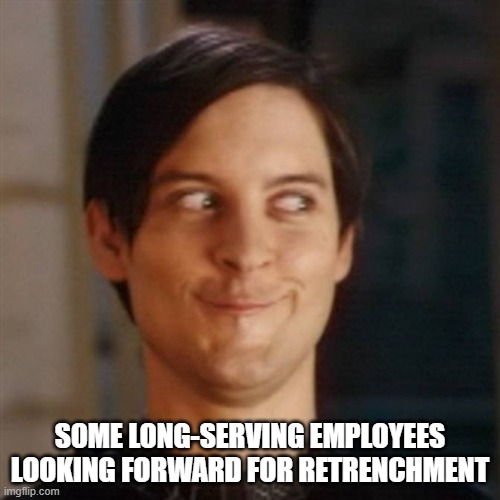For the past few months, we have seen many companies going through a job cut where many people are losing their jobs. To some long-serving employees, it can be a benefit for them as they can leave those jobs with a big fat compensation if they are getting paid fairly. That money can be used for their early retirement, paying off their debts, doing business, or even investing depending on what is their plan. For some, getting retrenched is a bad thing for them since their income stream is getting cut & it will affect them badly. End of the day, it can be a bad thing for many if they do not have any proper plan.

With the announcement from many major companies on downsizing and retrenchment, if you are working for them, are you prepared for the possible circumstances? If it’s a yes, then it is good for you but if it is a no, below are some of the steps that you can take.
Preparing For Retrenchment
1. Have At Least 6-12 Months Of Savings This is something that everyone should have since we do not know what will happen tomorrow. If you do not have any cash savings, start saving now to be prepared for any possible emergencies.
2. Seek For An Additional Source Of IncomeI have emphasized on having additional sources of income multiple times in my previous post. Not only will it help you to survive a possible retrenchment, but you can also earn additional money for yourself.

3. Start Exploring What Is Out ThereSome industries or companies may be only affected by the global economic situation & some may not. You can also look into other companies or industries that are not affected to move on just in case there is a possible retrenchment. Usually, those big companies will announce job cuts before the actual cut happens. You will have around 1-2 months to look out before the actual cut happens.
Post Retrenchment
1. Ensure That You Are Getting The Best PackageWhen a company is going through a job cut exercise, they will always look into the best benefits for themselves. You should also look into the best benefits for yourself especially when you have been contributing towards the success of the company. If you think that the package is not good enough, renegotiate for the best package that will benefit you.
2. Manage Your Expenses & DebtsWhen you got retrenched, you will be having a loss of income over a period of time. This is when your financial planning is crucial for you to go through this period. You should first reduce your expenses & cut those expenses that are not needed or necessary. Secondly, you need to manage your debt well enough to ensure you don’t miss any payments. If you have a lump sum of money that you can use to pay off your debt, you should also consider that.
3. Take A Break (If Needed)Most of us have been working since we graduate from school, college, or university. This is the best time for you to take some time off to explore places that you want to go to or do activities that you plan to do but you don’t have time for it in the past.

4. Planning What’s NextAsk yourself, do you still want to work for someone or do you plan to venture into your own business? Evaluate what’s best for you & start planning during this period.
5. Upgrade Your SkillThis applies to the future job or business that you plan to venture into. It can also be a skill that you want to pick up in the past but you don’t have time for it. This is the best time for you to upgrade your skill whether it is for your own passion or income related.
6. Update Your Resume & LinkedInOnce you have taken some time off & you are ready to explore what is out there, you can update your resume & your LinkedIn profile to start hunting for a job or a possible business venture.
Conclusion:
I can’t emphasize enough the importance of having a proper plan to prepare for the worst. The global pandemic has taught us a lesson on the importance of being prepared for the worst by having 6-12 months’ worth of cash savings & the current global economic situation is no different. We need to have cash savings in every situation to be fully prepared for the worst. Aside from that, having a backup income stream will also help you with any possible loss of income from your main income. It can be from your side hustle or investments. When you have a backup plan, you will have minimal impact if you are retrenched from your company.

OSS!
You can also check out my latest YouTube video on Why Do You Need Financial Planning?



